SIEA má za sebou druhú úspešnú organizáciu Národnej klastrovej konferencie
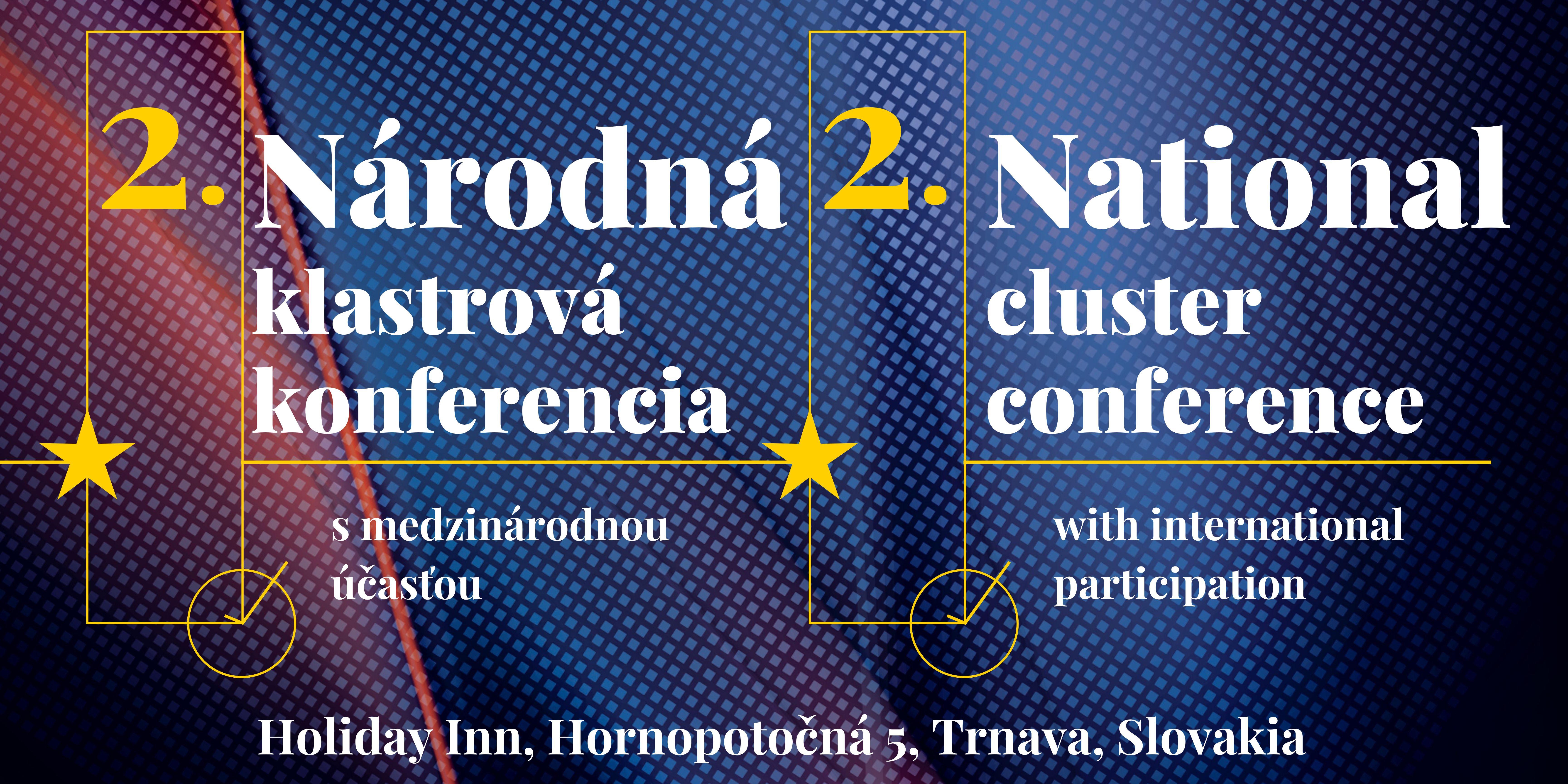
Klastre vo svojej činnosti reflektujú riešenia pre aktuálne celospoločenské výzvy
Slovenská inovačná a energetická agentúra (SIEA) zorganizovala 2. národnú klastrovú konferenciu s medzinárodnou účasťou pod názvom "Klastre ako motor rozvoja regionálneho inovačného ekosystému" so zameraním na úlohu a prínos klastrov ako kľúčových inovačných hráčov v procesoch zelenej a digitálnej transformácie na Slovensku. Podujatie sa uskutočnilo v Trnave.
Na konferencii sa zúčastnilo vyše sto hostí. Medzi účastníkov konferencie patrili slovenské priemyselné klastre, zástupcovia štátnej a verejnej správy ako napríklad predstavitelia Ministerstva hospodárstva SR, Ministerstva investícií, regionálneho rozvoja a informatizácie SR, Výskumnej a inovačnej autority, Únie klastrov Slovenska a Európskeho sekretariátu pre klastrové analýzy (ESCA).
Na medzinárodnej časti konferencie boli prítomné vybrané excelentné európske klastre so zlatým certifikátom udeľovaným ESCA z Rakúska, Maďarska, Poľska a Rumunska, ktoré sa počas diskusie podelili o príklady dobrej praxe z rôznych odvetví hospodárstva. Do programu konferencie sa zapojili aktívne zástupcovia Korea Development Institute v rámci bilaterálneho programu „Knowledge Sharing Program“, ktorý je orientovaný na sieťovanie aktérov inovačného procesu a rozvoj klastrovej spolupráce.
Konferencia tak nadviazala na minuloročné úspešné podujatie – 1. národnú klastrovú konferenciu, ktorá sa konala v spolupráci s Európskou platformou pre klastrovú spoluprácu, Alianciou ukrajinských klastrov a Enterprise Europe Network.
Prehľad odporúčaní, ktoré sú výstupom 2. Národnej klastrovej konferencie
- Konkrétne predstavenie riešení v oblasti podpory digitalizácie pre malé a stredné podniky napríklad prostredníctvom EDIH-ov (European Digital Innovation Hubs) pri užšej spolupráci s klastrami pôsobiacimi v tejto oblasti.
- V oblasti zelenej transformácie využitie možností, ktoré ponúkajú prepojenia Národnej platformy energetických a environmentálnych klastrov a združení s možnosťami kooperácie v rámci aktuálnych a pripravovaných medzinárodných energetických projektov pri zužitkovaní skúseností už etablovaných stakeholderov.
- Podporiť strategické partnerstvá klastrov, ktoré vedú k medzinárodnej spolupráci v kľúčových oblastiach mimo Európy. Dôraz klásť na pomoc malým a stredným podnikom pri prístupe ku globálnym hodnotovým reťazcom a na podporu dlhodobých partnerstiev v tretích krajinách.
- Podporovať vznik a vizibilitu nových klastrov v doteraz netradičných odvetviach ako obrana, šport, dizajn, kozmický priemysel a iné.
- Podporiť rozvoj regionálneho inovačného procesu zdola nahor prostredníctvom moderných nástrojov s pomocou umelej inteligencie a inteligentných technológií ako napríklad AI INNOVERSE.
- Naďalej podporovať propagáciu a význam klastrov v očiach odbornej a laickej verejnosti.
- Učiť sa od najlepších prostredníctvom šírenia best practices.
- Aktívne podporovať startupy v štruktúre inovačného ekosystému, ako významného prvku smerom do budúcnosti pre podporu exportu.
- Systematicky a kontinuálne podporovať klastre v čase s cieľom jej predvídania do budúcna.
- Zo strany klastrov nastavovať reálne a splniteľné ciele a transparentne definovať procesy v klastri.
- Posilniť vnímanie klastrov ako mostu k upskilling a reskilling.
Prezentácie spíkrov z 2. Národnej klastrovej konferencie
Clusters reflect solutions for current societal challenges
The Slovak Innovation and Energy Agency (SIEA) organized the 2nd national cluster conference with international participation under the title "Clusters as an engine for the development of the regional innovation ecosystem" with a focus on the role and contribution of clusters as key innovation players in the process of green and digital transformation in Slovakia. The event took place in Trnava.
The conference was attended by over a hundred guests. Participants included Slovak industrial clusters, state and public administration representatives such as representatives of the Ministry of Economy of the Slovak Republic, the Ministry of Investments, Regional Development and Informatization of the Slovak Republic, the Research and Innovation Authority, the Union of Clusters of Slovakia and the European Secretariat for Cluster Analysis (ESCA).
At the international part of the conferences, selected excellent European clusters with a gold certificate awarded by ESCA from Austria, Hungary, Poland and Romania were present, who shared examples of good practice from various sectors of the economy during the discussion. Active representatives of the Korea Development Institute participate in the conference program as part of the "Knowledge Sharing Program" bilateral program, which is oriented to the networking of the actors of the innovation process and the development of cluster cooperation.
The conference followed on from last year's successful event – the 1st National Cluster Conference, which was held in cooperation with the European Platform for Cluster Cooperation, the Alliance of Ukrainian Clusters and the Enterprise Europe Network.
Overview of recommendations that are the output of the 2nd National Cluster Conference
- Concrete presentation of solutions in the field of digitization support for small and medium-sized enterprises, for example through EDIHs (European Digital Innovation Hubs) in closer cooperation with clusters operating in this area.
- In the field of green transformation, the use of opportunities offered by the links of the National Platform of Energy and Environmental Clusters and Associations with the possibilities of cooperation within current and upcoming international energy projects while utilizing the experience of already established stakeholders.
- Support strategic cluster partnerships that lead to international cooperation in key areas outside Europe. Focus on helping small and medium-sized enterprises to access global value chains and to support long-term partnerships in third countries.
- Support the emergence and visibility of new clusters in hitherto non-traditional industries such as defense, sports, design, space industry and others.
- Support the development of the regional innovation process from the bottom up through modern tools with the help of artificial intelligence and smart technologies, such as AI INNOVERSE.
- Continue to support the promotion and importance of clusters in the eyes of the professional and lay public.
- Learn from the best through the dissemination of best practices.
- Actively support startups in the structure of the innovation ecosystem, as an important element in the future for export support.
- Systematically and continuously support clusters over time with the aim of predicting it in the future.
- On the part of the clusters, set realistic and achievable goals and transparently define the processes in the cluster.
- Strengthen the perception of clusters as a bridge to upskilling and reskilling.
Speakers' presentations from the 2nd National Cluster Conference
Prezentácie
Franz Bailom - INNO-VERSE: Simplify Innovation with AI (7,05 mb, pdf)
Edmund Škorvaga - Systém podpory v gescii MH SR Výskum, vývoj, inovácie a podpora MSP (936 kb, pdf)
Helmut Kergel - Cluster Management Excellence and its Benefits for Cluster Internationalisation (1,2 mb, pdf)
Dominik Lelkes - Vybrané aspekty prínosu inovačného klastra pre obranu a bezpečnosť SR (993 kb, pdf)
Martin Benko - Slovenské športové inovačné centrum - klaster (7,8 mb, pdf)
Program / Schedule
Day one (opening in Slovak, the rest in English)
08:00 – 08:55 Registration
09:00 – 09:45 Opening
- Opening note by the General Director of the Strategy Section at the Ministry of Economy of the Slovak Republic
- Opening note by the General Director of the Digital Agenda Section at the Ministry of Investment, Regional Development and Informatisation of the Slovak Republic
- Opening note by the Representative of the Union of Clusters of Slovakia
09:45 – 11:15 Twin Green and Digital Transition: How Clusters are Meeting the Challenge
Clusters play a central role in the European Commission's competitiveness and Smart Specialisation strategies (DG Research, 2019). The European Expert Group on clusters recognizes that clusters are pivotal in accelerating the twin green and digital transition (GDT), contributing to resilience, and driving recovery. This discussion explores how Slovakia is addressing the challenges of GDT and the crucial role clusters are expected to play in this transformation.
- Key note speech by VAIA: Andrea Uhrínová
- Round table discussion – Miriama Hučková - IT Valley, Markus Simbürger – Green Tech Valley Cluster, AT, Michal Műhl - EXPANDI 4.0, Patrik Križanský – SEVA. Moderator: Andrea Uhrínová - VAIA
- Language: English
11:15 – 11:30 Coffee Break
11:30 – 13:00 Excellence and Its Benefits for Cluster Internationalization
Established in 2010, ESCA (European Secretariat for Cluster Analysis) champions Cluster Management Excellence by conducting benchmarking and quality labeling for cluster management organizations globally. How does it facilitate the internationalization of clusters? What other benefits are bringing this quality label?
- Key note presentation: Helmut Kergel, VDI/VDE - ESCA
- Round table discussion: Peter Keller – Office of Governement of Hungary, Lukasz Goreczki – Silesia Automotive and Advanced manufacturing Cluster, Helmut Kergel VDI/VDE, and Jan Václav, Slovak Plastic Cluster. Moderator: Ronald Blaško, VAIA
- Language: English (translation is not provided)
13:00 – 14:00 Lunch
14:00 – 15:30 Internationalisation Beyond Europe
The primary goal of Clusters Go International under the COSME program was to enhance collaboration between clusters and business networks beyond borders and sectors. This initiative aimed to support the formation of European Strategic Cluster Partnerships, leading international cooperation in strategically significant fields beyond Europe. The focus was on aiding SMEs in accessing global value chains and fostering long-term partnerships in third countries.
As we consider whether to repeat this approach, the crucial question arises: Should we continue supporting clusters´ internationalisation helping their member to go international, or is it time to explore alternative strategies that will be focusing on SMEs directly? What insights can we gain from the experiences in Korea, Poland or Ukraine?
- Key note speech: Dr. Suh, Korean Development Institute, Korea
- Round table discussion: representative of KDI, Lukáš Parízek - Council of the Slovak Exporters, Monika Antonowicz, PARP (TBC), Ciprian Morcan (Transylvanian Furniture Cluster), Moderator: Zulf Hyat Khan
- Language: English (translation is not provided)
15:30 – 15:45 Coffee Break
15:45 – 18:00 Workshop: „How to support the development of the regional innovation process from the bottom up using modern tools with the help of AI - INNOVERSE“
The unprecedented growth of the information and communication technologies (ICT) sector, coupled with the recent surge in AI applications, has hastened dramatic changes in societies
and global employment trends. The integration of ICTs into innovation systems has provenpivotal for enhancing the overall competitiveness of economic regions and national economies. How can we leverage ICT for regional development, and what role does AI play in this context?
To address these questions, a framework-guidance tool has been developed. This tool can formulate scenarios for regional development and enhance regional innovation systems. The model was implemented in an Austrian region, and the findings underscore the significance of smart technologies and AI in driving regional development.
- Presentation, case study and open floor discussion led by Dr. Franz Bailom, in-manas, Austria
- Language: English (translation is not provided)
18:30 – 20:30 Dinner
20:30 – 21:30 Wine tasting from regional superior wineries
Deň druhý - Day Two
9:00 – 9:45 Stratégia rozvoja klastrov 2022 - 2028 a nástroje rozvoja regionálneho inovačného ekosystému
- Prezentácie MH SR - Vladimír Tanistrák a SIEA - Martin Svoboda
- Rokovací jazyk: slovenský jazyk
9:45 – 10:45 Workshopy
- Workshop 1 - Slovenské nové klastre v oblastiach obrana - Dominik Lelkes, šport - Martin Benko, design - Milan Illes, SIEA - Vladimír Borza (SK)
- Workshop 2 - Rozvoj klastrových stratégií za pomoci AI, SIEA - Artur Bobovnický (ENG)
- Workshop 3 - Internacionalizácia slovenských klastrov + skúsenosti z Južnej Kórei - Dr. Geunyoung Kim, zástupca Košice IT Valley, SPK - Jan Václav, Bioeconomy - Sára Horváthová, SIEA - Peter Adamovský (ENG)
10:45 – 11:00 Prestávka
11:00 – 12:15 Diskusné fórum klastrov s tvorcami politík
- Riadená diskusia, diskusiu vedie: Artur Bobovnický
- Otázky pripravené vopred, resp. cez aplikáciu
- Rokovací jazyk: slovenský jazyk
12:15 – 12:25 Ukončenie konferencie
Martin Svoboda - riaditeľ sekcie inovácií a medzinárodných vzťahov - SIEA
12:30 – 13:45 Obed
Spíkri / Speakers
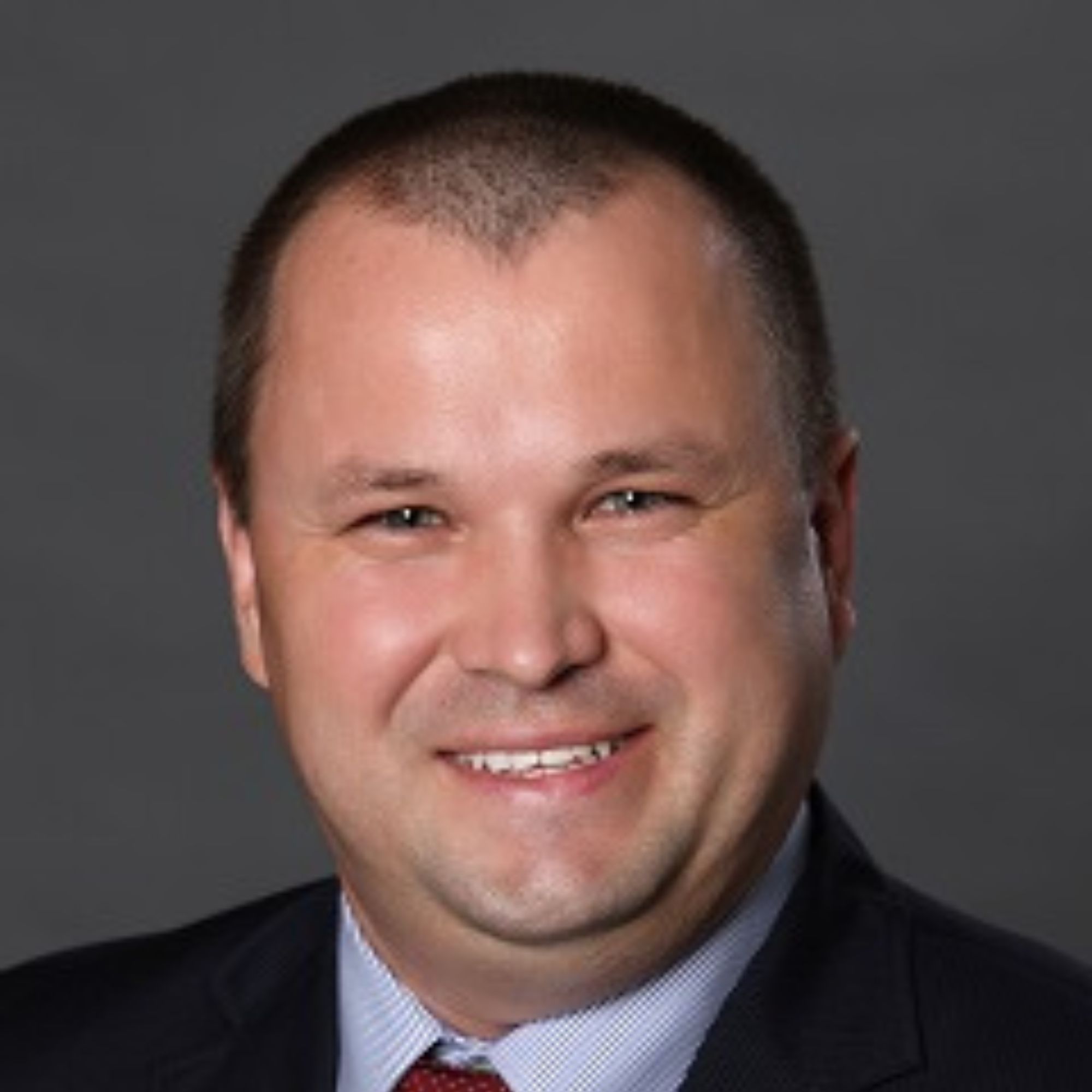
Gabriel Galgóci
Gabriel is Director-General of the Strategy Section at the Ministry of Economy of the Slovak Republic responsible mainly for policies in the areas of industry, innovation, industrial clusters and SMEs.
Gabriel is a results oriented technology professional with a successful track record managing and growing offshore operations supporting delivery of IT and Telecommunication services to global business customers. With a sound understanding of the technology marketplace, IT trends, and strategies, Gabriel is a conceptual thinker with proven expertise in organization building, recruiting, general management, translating business strategies into action and most importantly, leading powerful teams in support of global delivery. He has extensive operational experience in Customer Care and Service Delivery areas. Last 17 years he managed teams located in multiple strategic centers in a corporate environment in Europe, US, Canada, Latin America and Asia Pacific responsible for data, voice and security network engineering. Gabriel had been part of team leading several high-profile, high-impact services launches efforts.
.jpg)
Michal Maco
The new General Director of the Digital Agenda Section at the Ministry of Investment, Regional Development and Informatisation is Mgr. Michal Maco, who has many years of experience in the IT field, whether as CEO of SEA, Head of IT at Merck or Country Lead for IT at PwC.
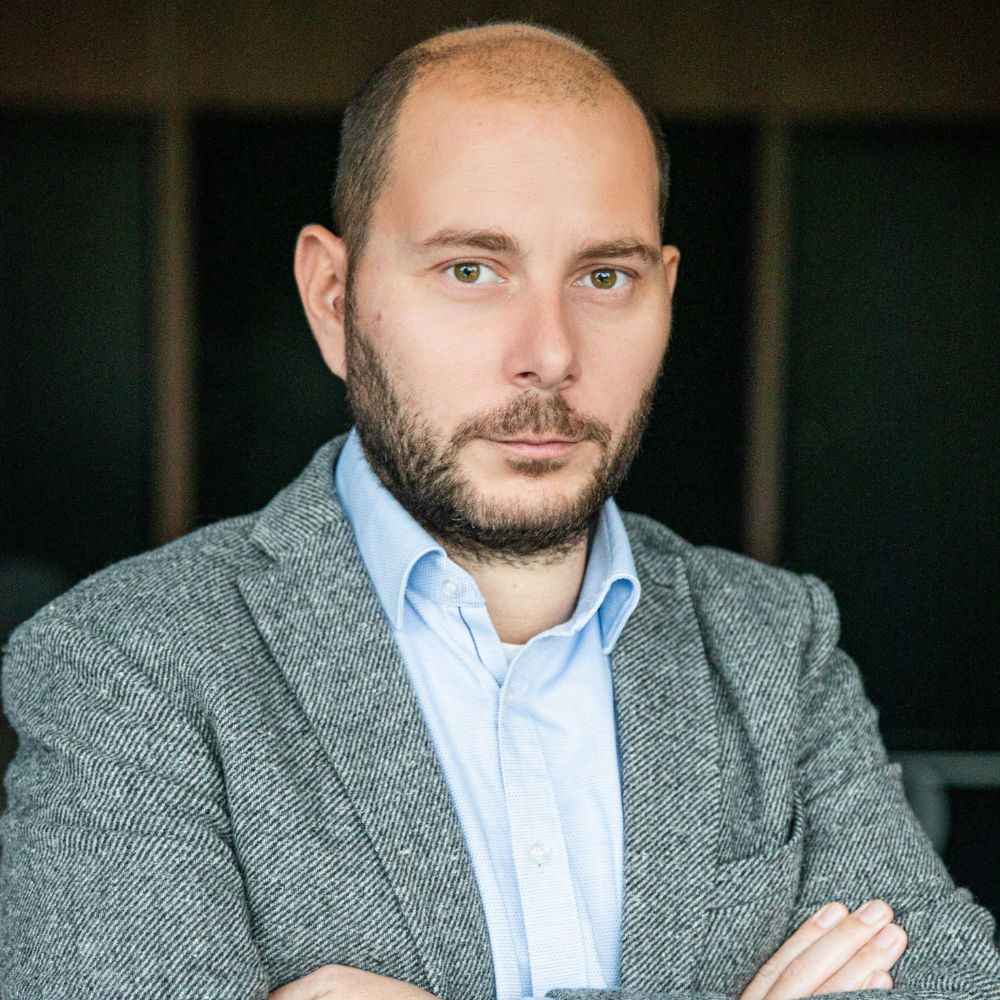
Mgr. Martin Svoboda
Martin is the director of the innovation section at the Slovak Innovation and Energy Agency (SIEA). In the past, he participated in the development of cluster development policies in Slovakia, including the financing of "soft" cluster activities through the support mechanism of the Ministry of the Interior of the Slovak Republic. He participated in the creation of several strategic documents in the field of innovation policy, support mechanisms, as well as documents related to the setting of EŠIF programming periods for research, development and innovation.
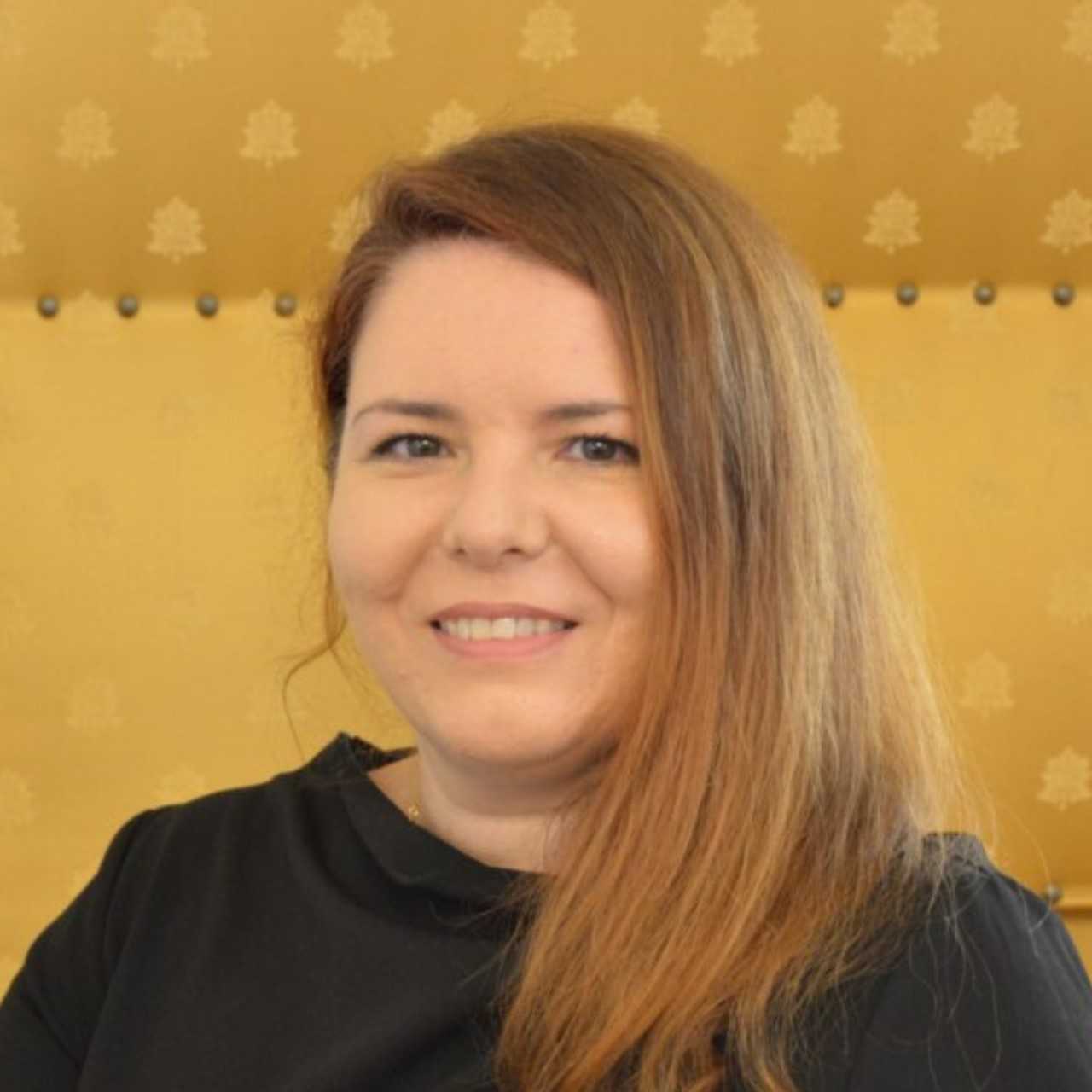
Andrea Uhrínová
Andrea has been a part of the Research and Innovation Authority team at the Office of the Deputy Prime Minister of the Slovak Republic since 2020, bringing over 15 years of experience in developing and implementing research and innovation policies at both national and European levels. Previously, she worked at the Ministry of Investment, Regional Development, and Informatization of the Slovak Republic, where she coordinated the finalization of the Research and Innovation Strategy for Smart Specialization. She also served at the Ministry of Education, Science, Research, and Sport of the Slovak Republic, where she was part of the negotiating team for the Operational Programme Research and Innovation. Andrea has been involved in preparing several strategic documents in the field of research, development, and innovation. She is a graduate of law from Comenius University in Bratislava and international relations and diplomacy from Andrássy University in Budapest.
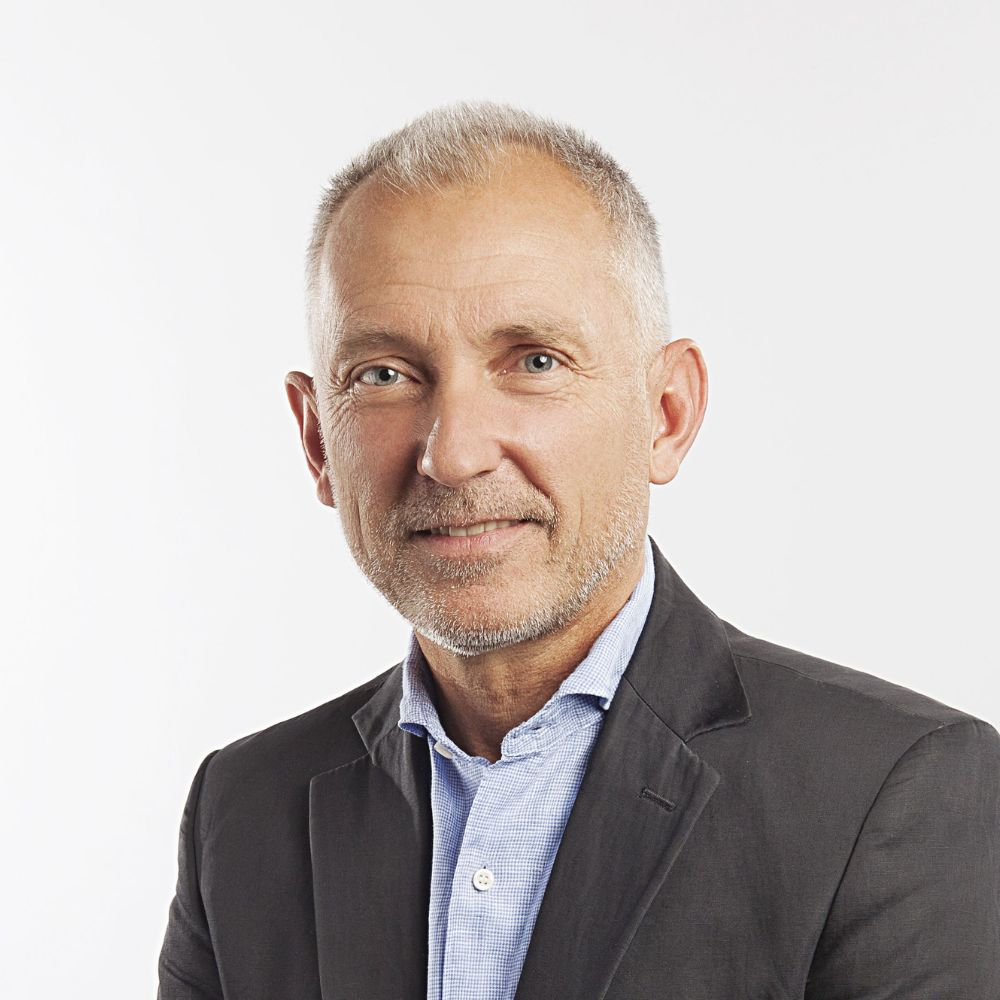
Ing. Artur Bobovnický, CSc.
Artur is the manager for new projects of the Innovation and International Cooperation Section of the Slovak Innovation and Energy Agency (SIEA). From 2016 until recently, he served as the director of this section. His professional focus is on the field of intelligent specialization (RIS3), cluster development support and fact-based decision support. Currently, he is responsible for the acquisition of new international projects financed by the H2020 and Interreg programs, which are being implemented in the agency for a long time. He worked as a director in the field of FMCG (2013-2016), in the first mobile operator in Slovakia (1994-1999), as a partner of international consulting companies in the field of management and innovation (1991-1994, 2004-2013), and also as the first director in history of SARIO (2002-2003). In addition to his professional work in the commercial sphere, he also passed on his experience as a lecturer at UCM FMK in Trnava, focusing on the areas of global and strategic marketing. Graduated from STU in Bratislava (1984), Department of Thermal and Nuclear Energy Machinery and Equipment, where he also completed postgraduate studies and defended his dissertation (1989).
.jpg)
Helmut Kergel
Helmut Kergel graduated from the Technical University of Berlin in 1986 (Diplom-Ingenieur) in precision engineering. Today he is senior consultant in the department “Demography, Clusters and Foresight“ of VDI/VDE Innovation + Technik GmbH (VDI/VDE-IT).
VDI/VDE-IT is a leading German service provider in the field of innovation and technology for national as well as international customers, providing assistance and counselling for the analysis, funding, and organisation of innovation and technology as well as for regional development – for clients with political, research, industry and finance backgrounds. Besides being involved in the management, coordination and evaluation of collaborative innovation projects on national and EU level, Helmut Kergel was as well responsible for a number of international innovation consulting and training projects in several countries, Europe and overseas.
Since 2009, Helmut Kergel was significantly involved in the development of indicators and processes for assessing cluster management quality and for respective benchmarking methodologies in the context of various EU-, national, and German Federal State level initiatives and projects. In this regard, he was as well responsible for developing and implementing the “European Secretariat for Cluster Analysis (ESCA, www.cluster-analysis.org ) as a brand of VDI/VDE-IT in 2011, where he is appointed as director, responsible for all aspects.
ESCA makes available various tools of cluster management assessment and labelling to the broad international cluster community. ESCA organises and performs assessments of cluster management organisations leading to the “Cluster Management Excellence Labels” in GOLD, SILVER and BRONZE, being well recognised by cluster organisations and policy makers in many countries. After more than ten successful years of ESCA, a migration process currently is in progress to transfer the responsibility regarding the overall labelling system to the newly initiated “European Cluster Labelling Excellence Structure (EUCLES, www.eucles.be)”.
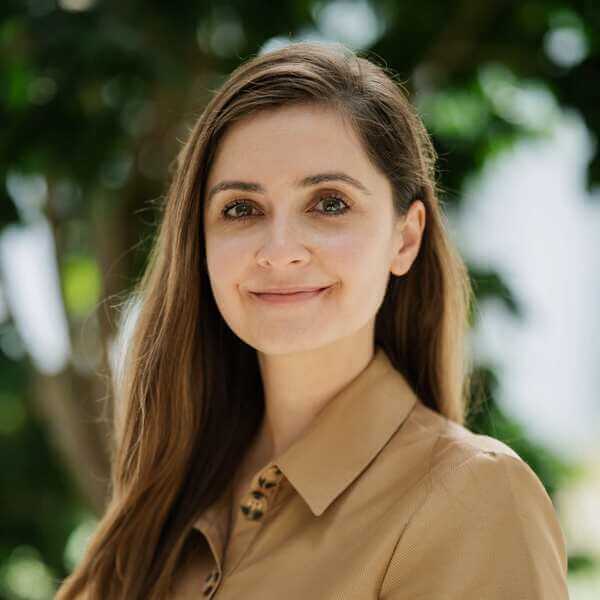
Miriama Hučková
Since 2020, Miriama has been the executive director of the Košice IT Valley cluster, whose goal is to create a favorable business environment and build a knowledge-based economy in eastern Slovakia. During her work, Miriama points out the importance of actively addressing the topic of stopping the so-called "brain drain" from the region, but also from the whole of Slovakia. Before that, she worked for 3 years at the Ministry of Economy of the Slovak Republic, where she was involved in the creation of policies to increase the innovative performance of the Slovak Republic, the Smart City concept and international cooperation. She studied law at universities in Slovakia and Italy. She gained valuable experience during her time at the University of Illinois Chicago, where she was actively involved in creating tools to support an innovative environment.
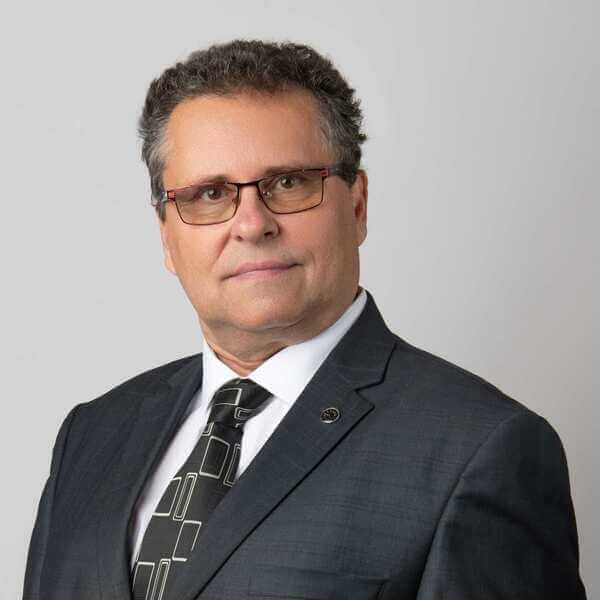
Tomáš Novotný
Tomáš is a long-time expert in the field of innovation and energy and environmental industry, manager of one of the oldest and largest industrial clusters - National Energy Cluster NEK, chairman of the Supervisory Board of the Union of Clusters of Slovakia. He is also founder of the National Platform of Energy and Environmental Clusters and Associations of Slovakia. For more than 30 years, he has been engaged in research, education and publishing activities in the domestic and international environment and is a professional guarantor of important international conferences in construction, energy and ecology in Slovakia.
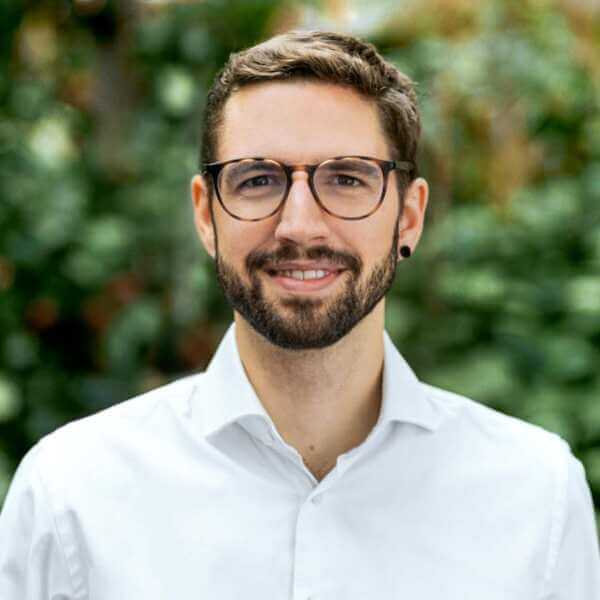
Markus Simbürger
Markus´s life is marked by diversity, and his journey toward environmental advocacy began during his time at the higher technical school. This passion led him to pursue a degree in Environmental Systems Science and Economics at Karl-Franzens University of Graz, where he delved into subjects like energy management and sustainable energy. For three years he worked at the research company Joanneum Research at the institute for Climate, Energy and Society with key issues relating to climate change, climate risks and transformation research towards a climate-neutral society. During this time, he collected many insights into the scientific research. Since 2021, he has been thriving as a project manager for climate solutions at the Green Tech Valley Cluster. Embracing diverse and interdisciplinary tasks allows him to reach his full potential. His responsibilities include presenting information on cutting-edge trends and innovations, such as Carbon Capture and Utilization, Ammonium, and Digital Twins, in collaboration with experts. Additionally, he organize and conduct workshops to support Cluster Partners in their green transformation journey and providing assistance through various services.
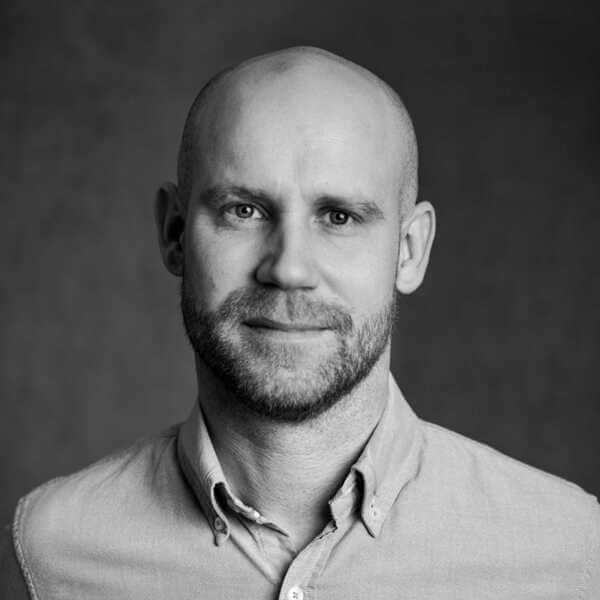
Michal Műhl
Michal works at the Slovak Innovation and Energy Agency (SIEA) as the director of the competitiveness department. He is the main project manager of EDIH EXPANDI 4.0 focused on the digitization of industrial SMEs. In national and international projects, he deals with the topic of innovation, digitization and employee education.
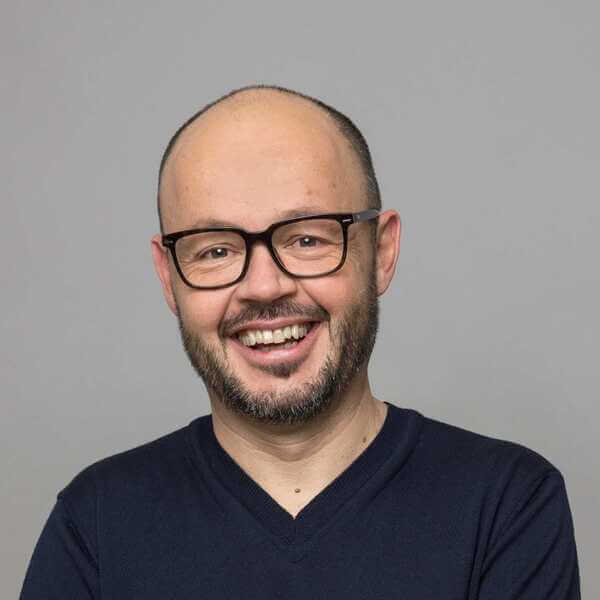
Dr. Franz Bailom
Franz is a Lecturer in prominent international management programs, previously serving as an Assistant Professor at the University of Innsbruck. Specialized in delivering courses on strategy and innovation. He is also recognized for significant contributions to academic research in the realms of strategy and innovation, acknowledged for pioneering and innovative problem-solving approaches. Instrumental in shaping corporate strategies for numerous companies. We may know him as a co-author of impactful management books, e.g. Enduring Success – What Top Companies Do Differently and international research papers, with a focus on advancing strategies and fostering innovation across various industries. Dr. Bailom is Founder & CEO of two thriving global enterprises: Since 2016 in-manas (Intelligent Management Solutions) Pioneering an innovative software platform equipped with specialized AI tools tailored for companies, countries, regions, and clusters. Since 2010, exit in 2015 he led an international consulting firm dedicated to strategic planning and innovation Innovative Management Partner.
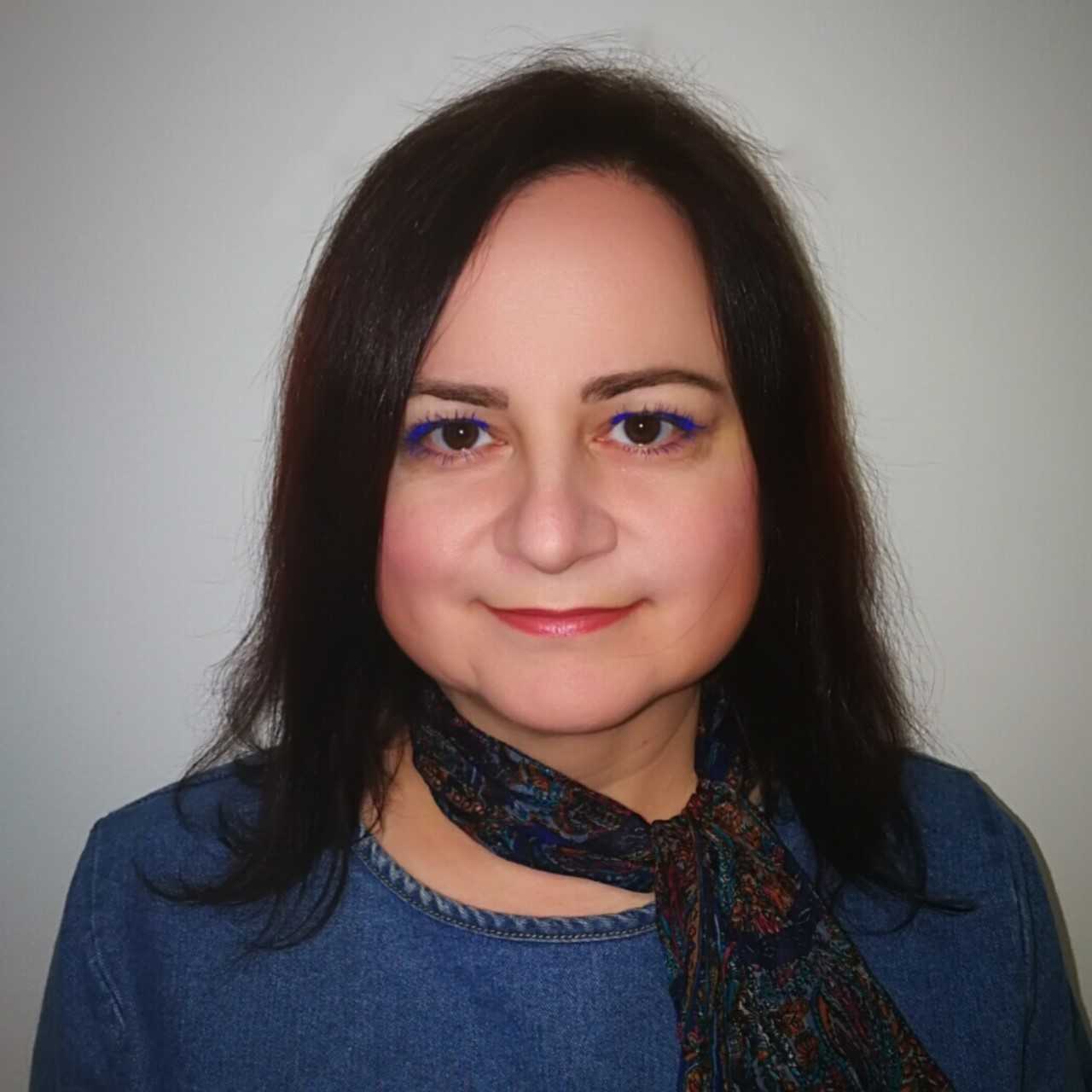
Monika Antonowicz
Monika has over 25 years of experience gained at every stage of the implementation of programmes and projects co-financed from national funds, EU structural and cohesion funds, EU research programmes and others. Currently in the Department of Analyses and Strategies PARP, she coordinates research activities concerning Polish clusters, deals with the creation and implementation of cluster policy and activities concerning the National Smart Specialisation policy. He participates in the implementation of the international CAFEIN project (cluster policy creation project), with the Polish Cluster Employers' Association as part of the Innovation Funding Advisory Board for the project partners. She has been working in PARP since 2001, where, among other things, she developed and implemented instruments for SMEs, particularly oriented towards innovation creation and building cooperation between science and industry, as well as implemented international projects in which the Agency was a beneficiary. She started her professional career in Toruń, where she successfully launched and coordinated the Euro Info Centre (now EEN) at the Toruń Regional Development Agency S.A.
She holds a Master's degree in Law (Faculty of Law and Administration at SWPS University) and a Master's degree in Romance Philology (Roman Philology at the Nicolaus Copernicus University in Toruń), as well as several postgraduate studies.
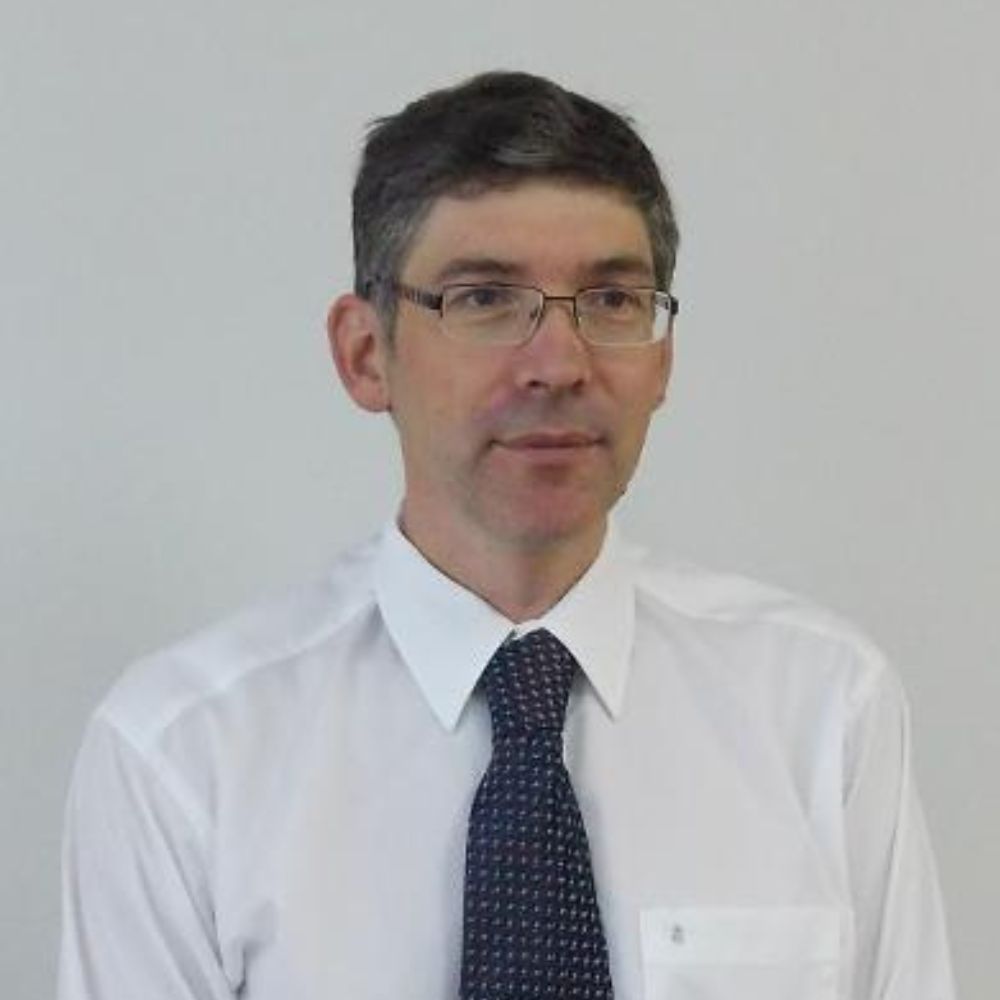
Jan Václav, M.Sc.
Jan studied at the Faculty of Mechanical Engineering of the Slovak Technical University in Bratislava, specializing in hydraulic and pneumatic machines, and at the Institute of International Relations at the Faculty of Law of Comenius University in Bratislava. He gradually worked in various positions: as a production worker, a marketing worker in large state-owned enterprises: ZTS š.p. Dubnica n./V. and ZVS š.p. Dubnica n./V., and also as a technical worker in the small design company PROATOM Ltd. He worked for 5 years in state administration at the Ministry of the Economy of the Slovak Republic in the European Union Department. Since 2022, he has been working at the Slovak Chamber of Commerce and Industry, where he is currently the Director of the Trenčin Regional Chamber of Slovak Chamber of Commerce and Industry, as well as the Enterprise Europe Network team in Slovakia. In 2015, he became a member of the Presidium of the Slovak Plastic Cluster. His main activity within Slovak Plastics Cluster is in the field of international cooperation support.
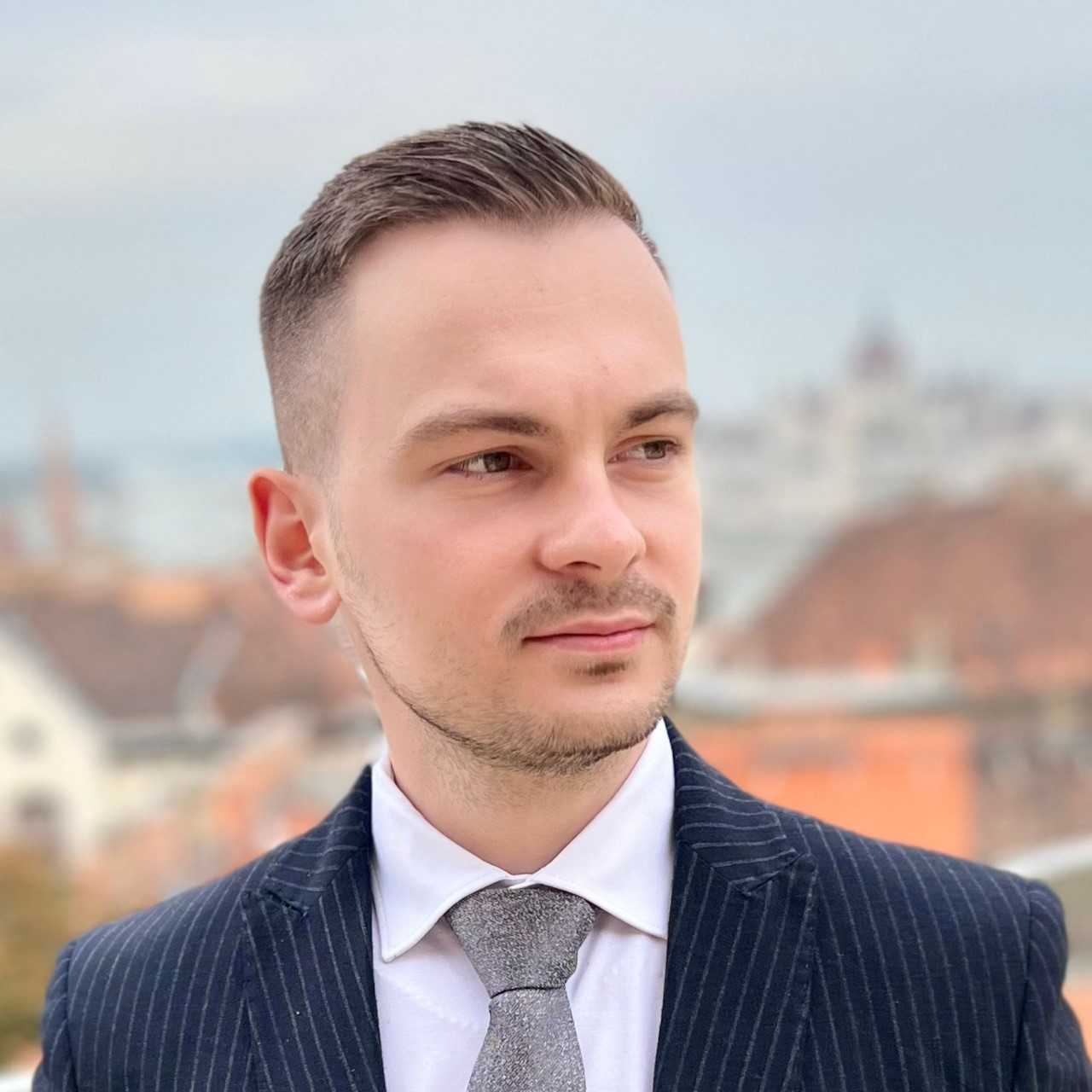
Dominik Lelkes
Dominik is a master's student at the Institute of European Studies and International Relations at the Faculty of Social and Economic Sciences of the Comenius University. He is an ambassador of the Office of the European Parliament in Slovakia and a member of the European Democracy Youth Network and the Robert Schuman Foundation. As part of his studies, he focuses on the defense policy of the European Union, the functioning of the defense innovation ecosystem in Slovakia and at the international level in terms of the involvement of various segments and state/non-state entities in defense research and defense innovations. He was the Slovak representative at the NATO-EU Roundtable 2020 conference in Estonia, publishes for a non-profit organization in Brussels - Stand Up for Europe - and also works as a political analyst for the Hungarian daily Bumm.sk. Within ICE, he focuses on the area of defense and security, as well as migration.
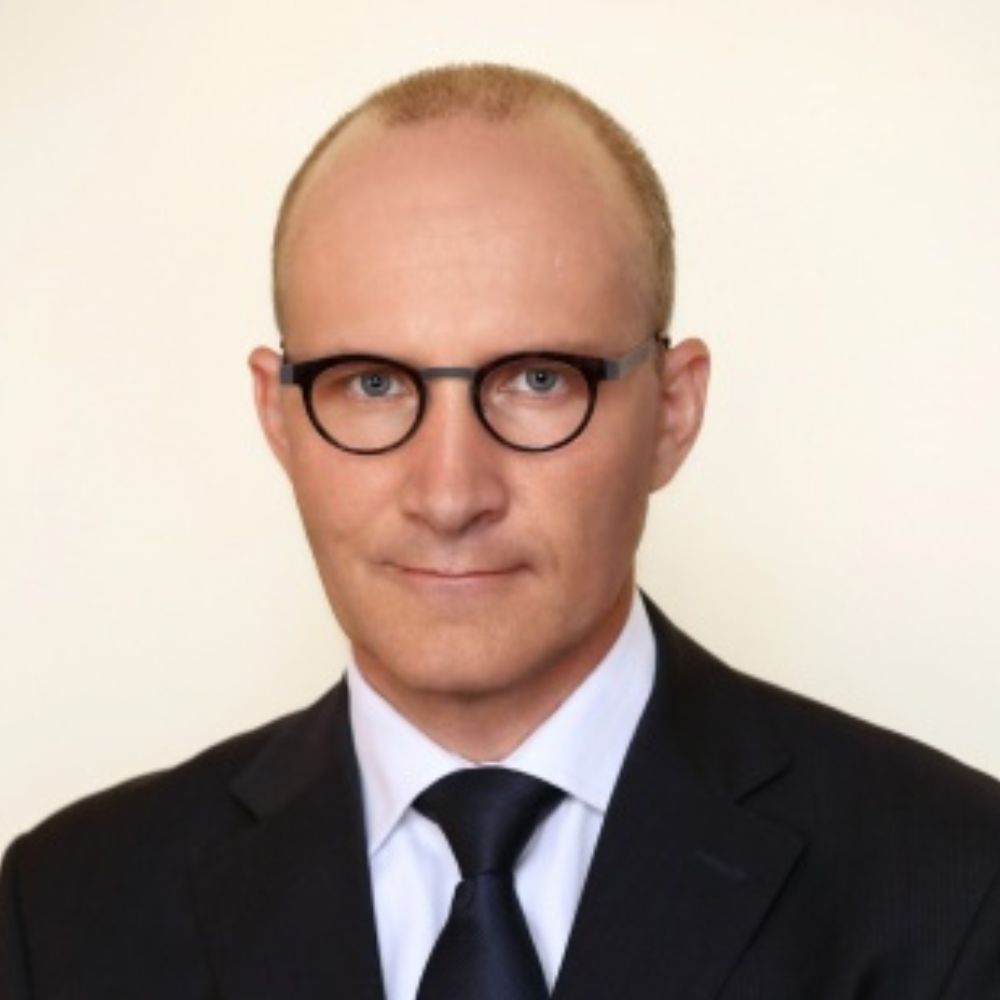
Ronald Blaško
Ronald received a master’s degree in the field of operation and economics of air transport (University of Žilina) and completed a postgraduate program in international economics at the Kiel Institute for World Economics in Germany. He has more than 20 years of experience in finance, consulting, insurance, the public finance sector, European nuclear affairs, and risk management in the energy sector. During his international career, he worked as a representative of Slovenské elektrárne in Foratom (Brussels, Belgium). He was the vice president of the Globsec organization and worked as the executive director of the American Chamber of Commerce in Slovakia for almost 5 years. He is currently the head of the department of priorities of the Research and Innovation Authority (VAIA) at the Office of the Government of the Slovak Republic.
.jpg)
Łukasz Górecki (MBA)
Director of SA&AM Cluster, Katowice Special Economic Zone Director in the Katowice Special Economic Zone, manages the largest automotive cluster in Poland - Silesia Automotive and Advanced Manufacturing (SA&AM). Łukasz is responsible for building a cooperation network between the automotive industry, suppliers of new technology for industry, scientific and research institutions and the education sector. He is a Vice-president of the Polish Cluster Association and member of the board of the European Automotive Cluster Network – EACN. Coordinator of many national and and international projects, co-creator of many regional initiatives such as the European Digital Innovation Hub - Silesia Smart Systems. Financier, MBA graduate, PhD student at the Silesian University of Technology in Gliwice. In his free time he is motorcyclist and enjoys motorization and motor sports.
.jpg)
Peter Keller
Peter’s professional background is competitiveness policies including cohesion policy co-financed by the EU, SME development, R&I, tourism, employment. Currently he is working at Managing Authority for Economic Development Programmes as a head of department at Ministry of Public Administration and Regional Development Hungary. He is responsible for:
- announcing call for proposals at Economic Development and Innovation Plus OP in the framework of 2021-27 period. Main topics: SME development, diminishing territorial disparities, R&I, employment, vocation trainings, higher educations;
- elaborating and implementing the Hungarian Cluster Development Strategy 2023-30;
- coordinating the international activities of the Managing Authority;
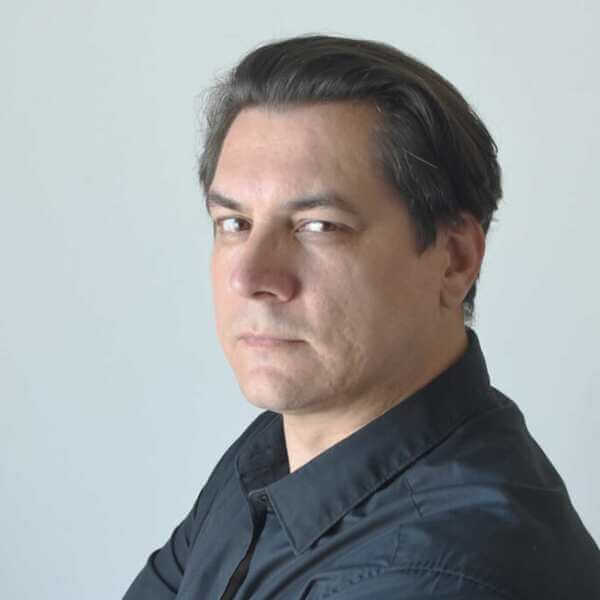
Milan Illes
Milan is a highly experienced and innovative professional in the field of interior architecture with over 20 years of expertise. As a senior consultant and project manager, he excels in integrating design thinking into various aspects of business. Milan is a co-founder of the Slovak Association of Interior Designers (SAID) and actively advocates for the recognition of interior designers in Slovakia. Additionally, he plays a key role in the European Council of Interior Architects (ECIA), leading a project of pan-European significance. Milan is also the Founder of Intebold Academy, an education platform dedicated to interior architecture. His educational background includes engineering and business management, and he has a passion for technology, innovation, and AI. Milan has a diverse international project portfolio, including significant contributions to projects in the United Arab Emirates, Kuwait, and Slovakia. Overall, Milan Illes is a dynamic and forward-thinking professional with a commitment to excellence and innovation in interior architecture.
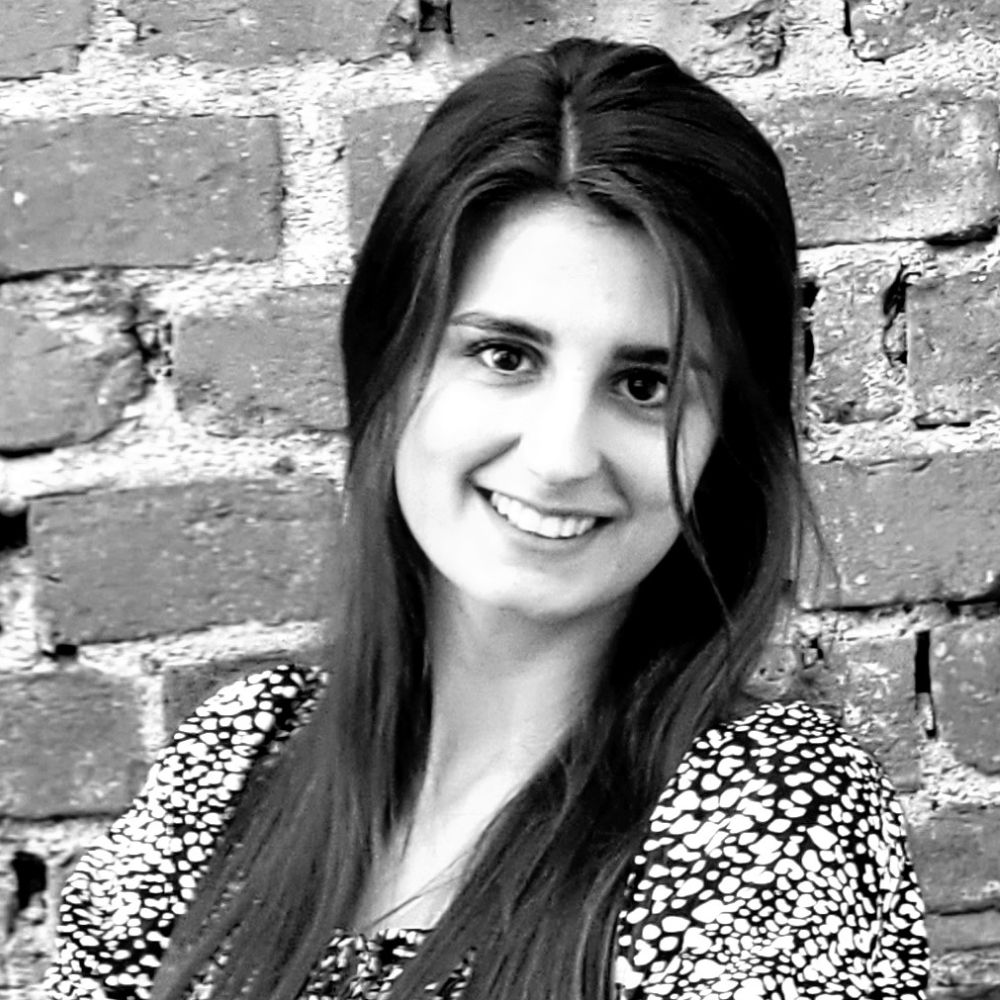
Sára Horváthová
Sára is a project manager in Bioeconomy Cluster working on projects mainly from the Horizon Europe programme. She is managing projects focused on regional bio-based business and governance model development and on increasing adoption level of sustainable and climate-smart farming practices. Engaged in mapping activities related to bioeconomy, climate-smart farming, and regenerative agriculture, she generated several analytical and strategic documents. Her activates include promoting sustainable and climate-smart farming practices, contributing to environmentally responsible agriculture. She has organized variety of events as workshops, focus group discussions, and conferences for diverse audience. She has been actively contributing to the establishment of Slovakia's first Soil Living Lab. Driven by a vision for a greener future, she is dedicated to pioneering positive change in the intersection of agriculture and sustainable development.
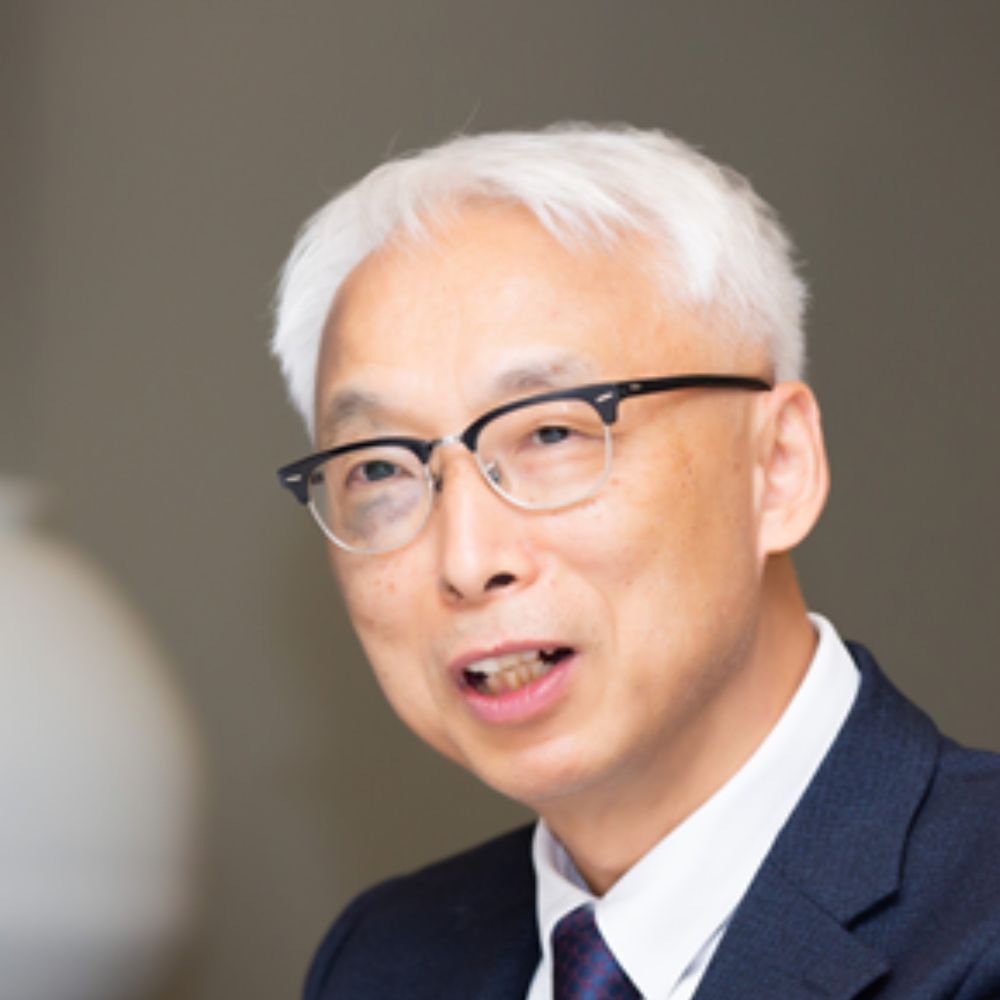
Dr. Joonghae Suh
Dr. Joonghae Suh is a Senior Fellow Emeritus at Korea Development Institute. Trained as an economist, he has maintained a lasting interest in the complex relationships between technological change and economic development. As a policy practitioner, he has actively engaged in many policy-related works: among others, Korea’s Vision 2030, World Bank’s knowledge economy project, and OECD’s national innovation system studies. For two years from 2006 to 2007, he had worked at Korea’s Ministry of Planning and Budget as Senior Policy Councilor and Director General for Strategic Planning Bureau, where he had been in charge of coordinating inter-ministerial tasks for implementing Korea’s Vision 2030. He is the main editor of Korea as a Knowledge Economy: Evolutionary Processes and Lessons Learned, which was published by World Bank in 2007 and translated into Spanish in 2008. He had worked as a senior economist at OECD Development Centre from March 2012 to March 2014. Before joining KDI in 2000, he had worked at United Nations University Institute for New Technologies (UNU/INTECH) in Maastricht, the Netherlands and Science and Technology Policy Institute in Seoul. Dr. Suh received a Ph.D. degree in Economics from the University of California, Los Angeles (UCLA) in 1993.
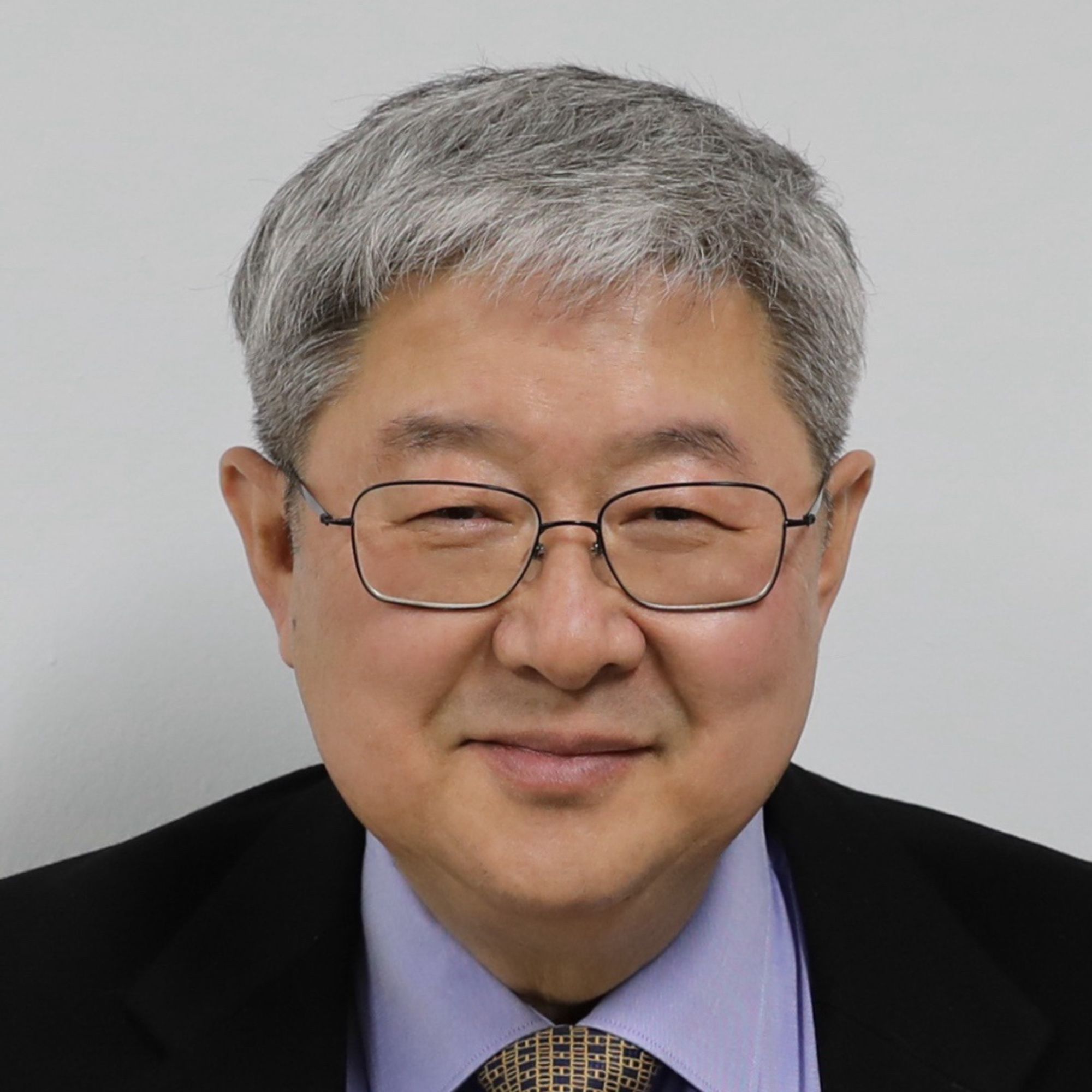
Dr. Geunyoung Kim
Dr. Kim is a professor of the department of Smart City Planning and the dean of School of Engineering at Kangnam University, South Korea. He got the Ph.D degree in Planning from the University of Southern California, USA. His professional focus is on Urban and Transportation Planning for Demographic and Economic Changes, Disaster Management and Governmental Administration, and 4th Industrial Revolution and Digital Economy. He has served for various academic societies including the President of Korean Urban Management Association and the Vice President of Korean Society of Disaster Information. For his country, Dr. Kim served as Advisory/Evaluation Committee Members for various levels of Korean Government including Executive Office of the President, Office of the Prime Minister, Ministry of the Interior and Safety, Ministry of Land/Infrastructure and Transport, Korean Government, Provincial & Local Governments, and Public Research Institutions & Corporations. He participated in international projects for South Sudan, Vietnam, Saudi Arabia and Colombia as Advisory Committee Members of Korea International Cooperation Agency(KOICA) and Korea Land & Housing Corporation(LH). He published several books including 『The Road to Decentralized Self-Government Systems』 and 『Pangyo is not the Silicon Valley』. Both books received academic awards from three academic societies. Dr. Kim was awarded the Presidential Award from the Korean Government, the Director Award from the National Emergency Management Agency of Korean Government, and the Urban Planning Policy Award from Gyeonggi Provincial Government.
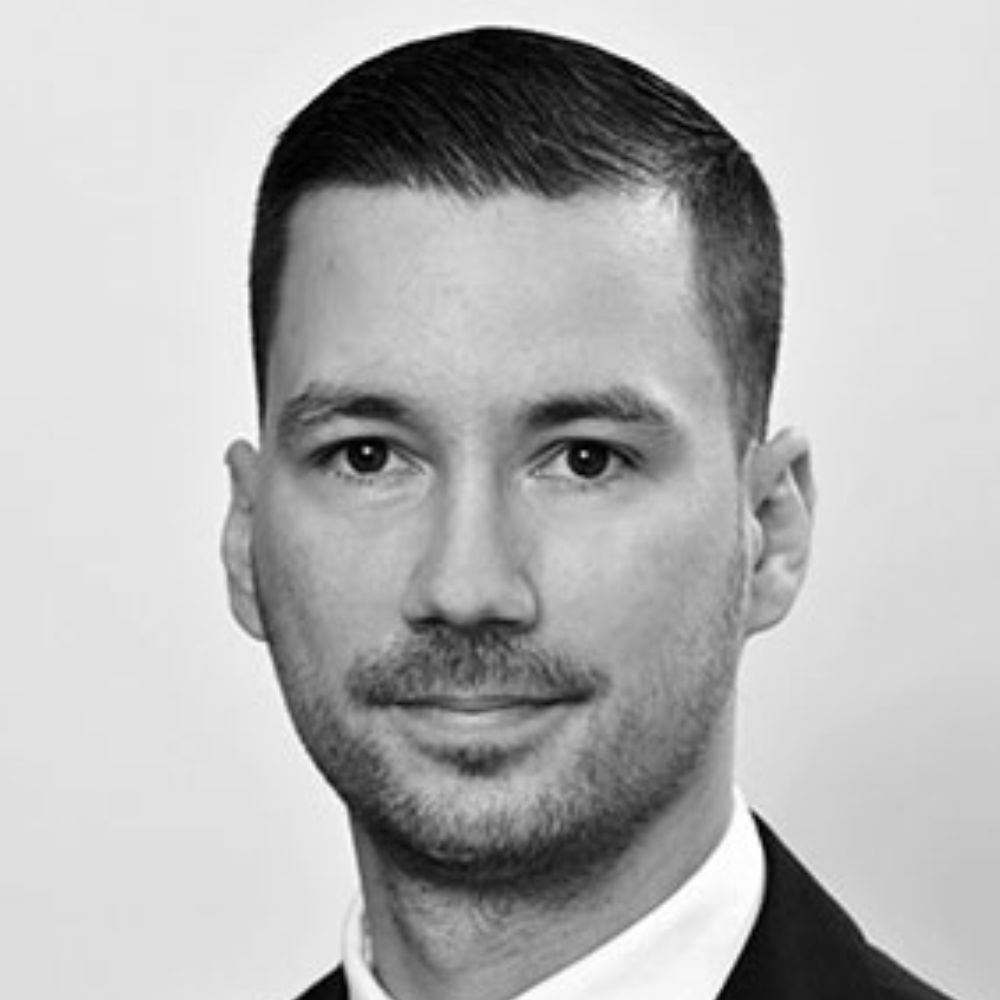
Lukáš Parízek
Lukáš Parízek is currently Chairman of the Council of Slovak Exporters. Previously, he served as the State Secretary of the Ministry of Foreign and European Affairs of the Slovak Republic in 2016-2020 and was Special Representative for the Slovak OSCE Chairmanship. He earned his degree in International Relations at the Moscow State Institute of International Relations (MGIMO) in the Russian Federation. After graduation, he worked for Transnational Threats Department at the Organization for Security and Co-operation in Europe (OSCE) Secretariat in Vienna, Austria. From 2013 to 2015 he worked at the Defence Policy Department at the Ministry of Defence of the Slovak Republic. Before his appointment, Mr. Parízek worked at the Department of Communication and International Cooperation at the Slovak Innovation and Energy Agency. In his capacity as the State Secretary, Mr. Parízek was responsible for areas of security policy, economic diplomacy, development assistance, international organizations, and the non-EU European territories, as well as Africa, Asia and the Pacific, and the Americas.

Zulf Hyatt-Khan
Zulf, currently acts as Deputy Chairman of the Council of Slovak Exporters, where his role revolves around the internationalization of the enterprise of its 100+ members, the growth and development of the organization, the opening of new markets for Slovak businesses, and is also currently the co-founder of the Visegrad 4 Business Conference. He brings a wealth of global and culturally nuanced experience that started in the UK and has spanned across the globe including senior positions in executive roles in B-G and Mega Projects in the Middle East for several Fortune 500 companies. Zulf is also a globally accomplished event host and has a background as a broadcaster covering local activities and international high-level events and is the host of two podcasts entitled “(un)Diplomatic the Podcast” and “Exportair International”.
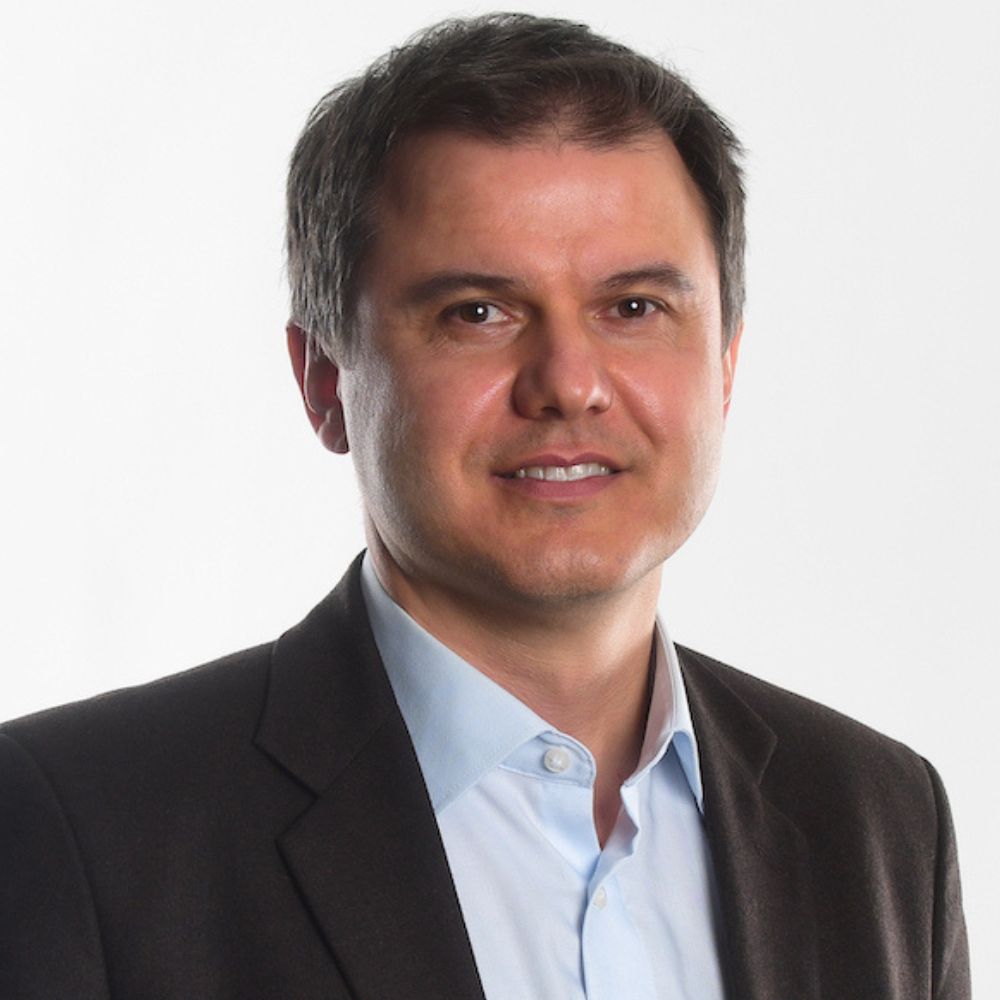
Patrik Krizansky
Patrik is a director of SEVA - Slovak Electric Vehicle Association Vice-president, AVERE – the European Association for Electromobility Patrik has long-term professional experience in electric mobility, renewables, and batteries. In addition to his elected positions in SEVA and AVERE, he is the managing partner of Enairgy, a clean tech consultancy, and Espio, a technology startup focused on graphene-based sensors. Patrik is an alumnus of the Executive MBA program at Carlson School of Management, the University of Minnesota, and WU Vienna University of Economics and Business, Austria, and also holds a Master's degree in International Affairs and Diplomacy from Matej Bel University in Slovakia. In addition, he is a certified trainer for the Battery Academy of the European Battery Alliance and an alumnus of the EIT InnoEnergy’s Battery Expert program.
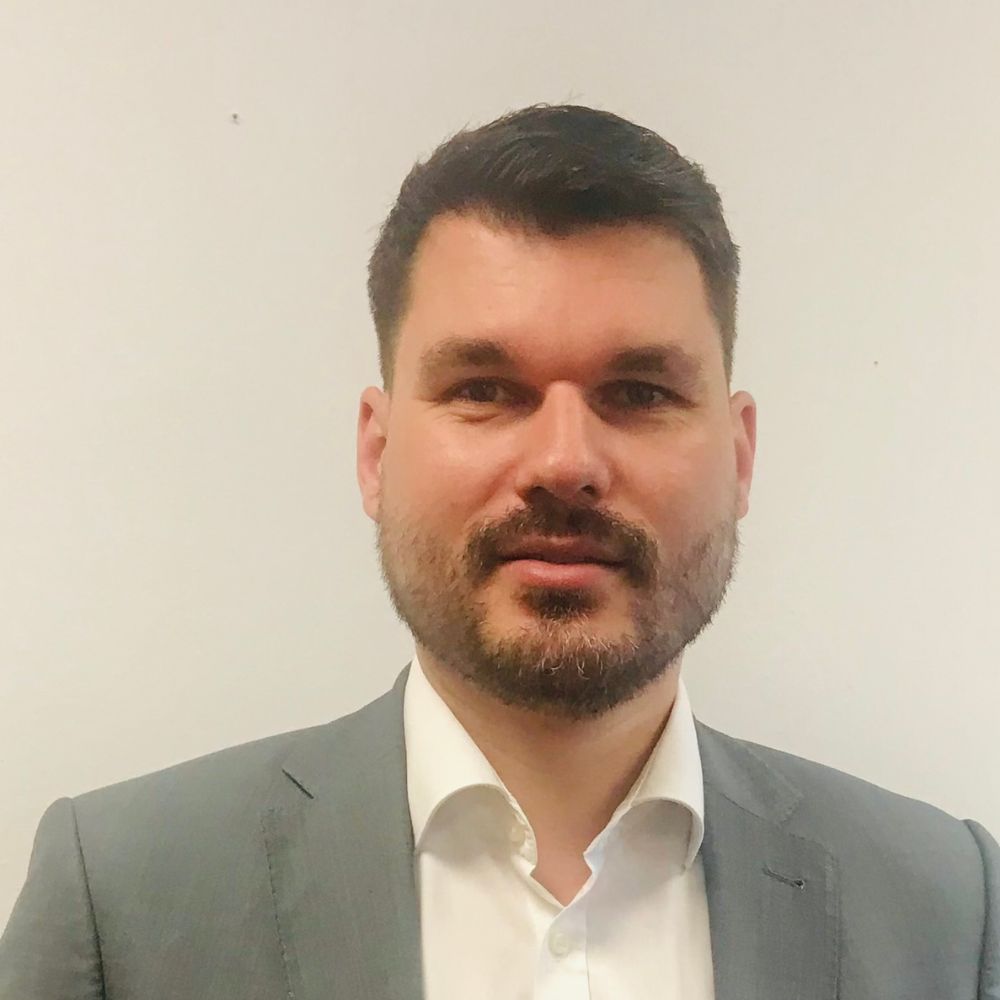
Vladimir Tanistrak
Vladimir graduated from the Business Faculty of the University of Economics in Bratislava. He has been working at the Ministry of Economy since 2011, and has been dealing with cluster support and cluster policy for a long time. In the field of innovation, he is dedicated to setting up and implementing support programs from the state budget, innovation policy and support of small and medium-sized enterprises. He represents Slovakia in several working groups and committees in the European Commission and the OECD. He has been part of several cross-border projects financed through the INTERREG Europe and Central Europe programs.
 (1).jpg)
Vladimír Borza
Vladimír Borza graduated from the Faculty of Natural Sciences of the Comenius University in Bratislava. At present, he works as Project Manager in the Slovak Innovation and Energy Agency (SIEA) in the Department of Cluster Development and Innovation. Dr. Borza participates in the preparation and implementation of tools for innovation and clusters public support. For the past seven years he has taken part in several international projects, such as “ACE – Achieving Cluster Excellence”, “ClusterFY” and “Valuable Creativity”. Nowadays he is involved in the UnicornQuest Project Team. He is a holder of international certificates: „Associate Trainer in Cluster Management Excellence“ (Fundació Clusters i Competitivitat), ESCA Cluster Benchmarking Expert and ESCA Cluster GOLD Expert through European Secretariat for Cluster Analysis. Mr. Borza completed expert training courses in Austria, Germany, Spain, Portugal and Israel.
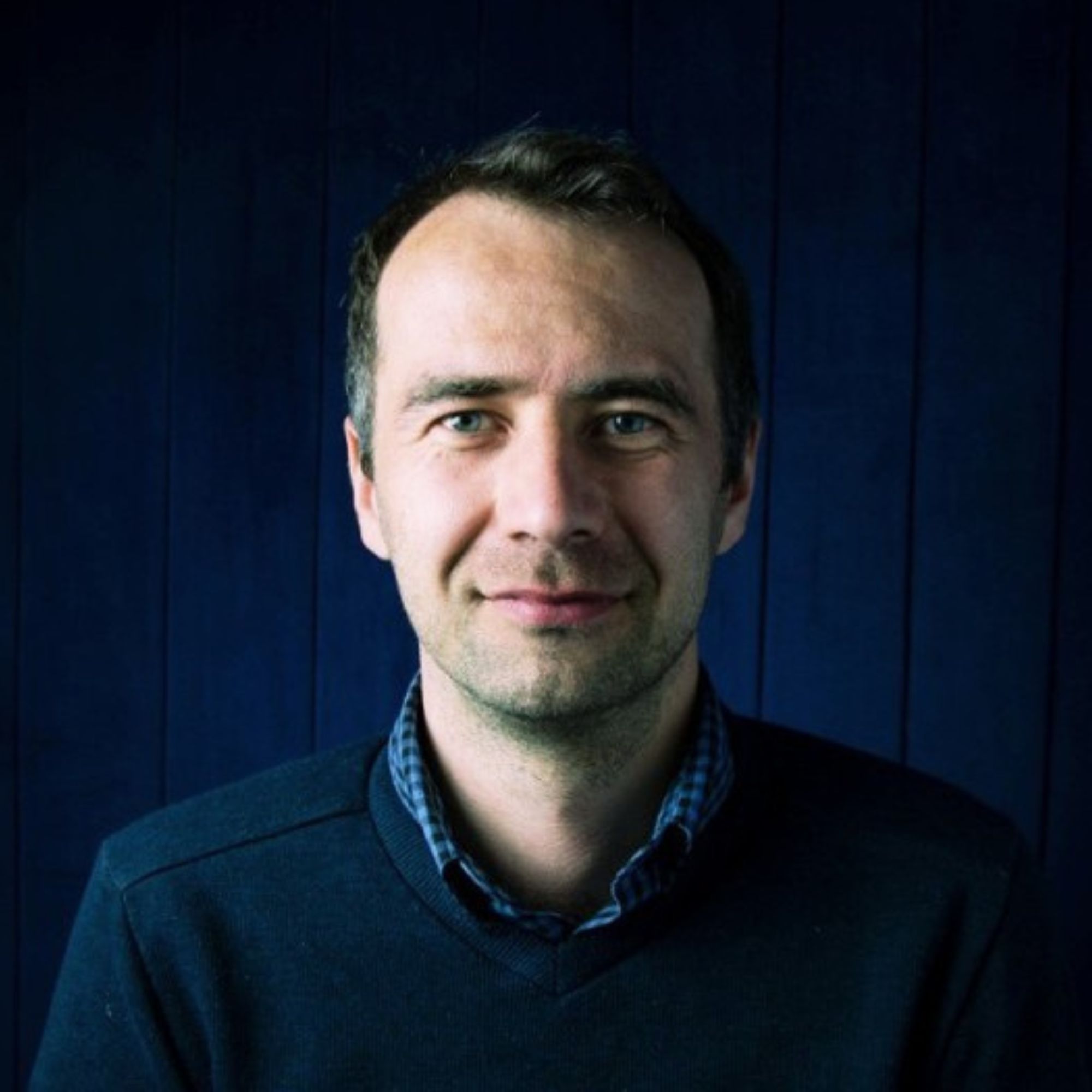
Matej Novotný
Matej is inspired by direct contact with meaningful ideas and innovations that have a real impact on society and the environment. He likes to have a group of positive people around him, who are a pleasure to work with. At the same time, through their activities,they are trying to contribute the growth of the innovation ecosystem in Slovakia. Before founding BALTEUS, Matej co-founded the travel agency WACHUMBA, which helps develop children’s and adolescents’ talents through experiential pedagogy. Outside working hours, he engages in ski mountaineering, mountain running, cycling, camping, and generally exploring new areas in wilds of Slovakia, and beyond. Nothing helps him clear his head more than being in the fresh mountain air. In life, he avoids being afraid of the new and the unknown.
.jpg)
Martin Benko
Martin is co-founder of the Slovak Sport Innovation Center – Cluster. He is entrepreneur, with large skills of business environment, economic studies, economic diplomacy, representation of the interests of Slovak companies abroad, networking of leaders, business operations, government and international institutions, foreign trade, innovation, SportsTech, IT Technology, AI, development assistance, management of international projects, EU funding, EBRD, World Bank.
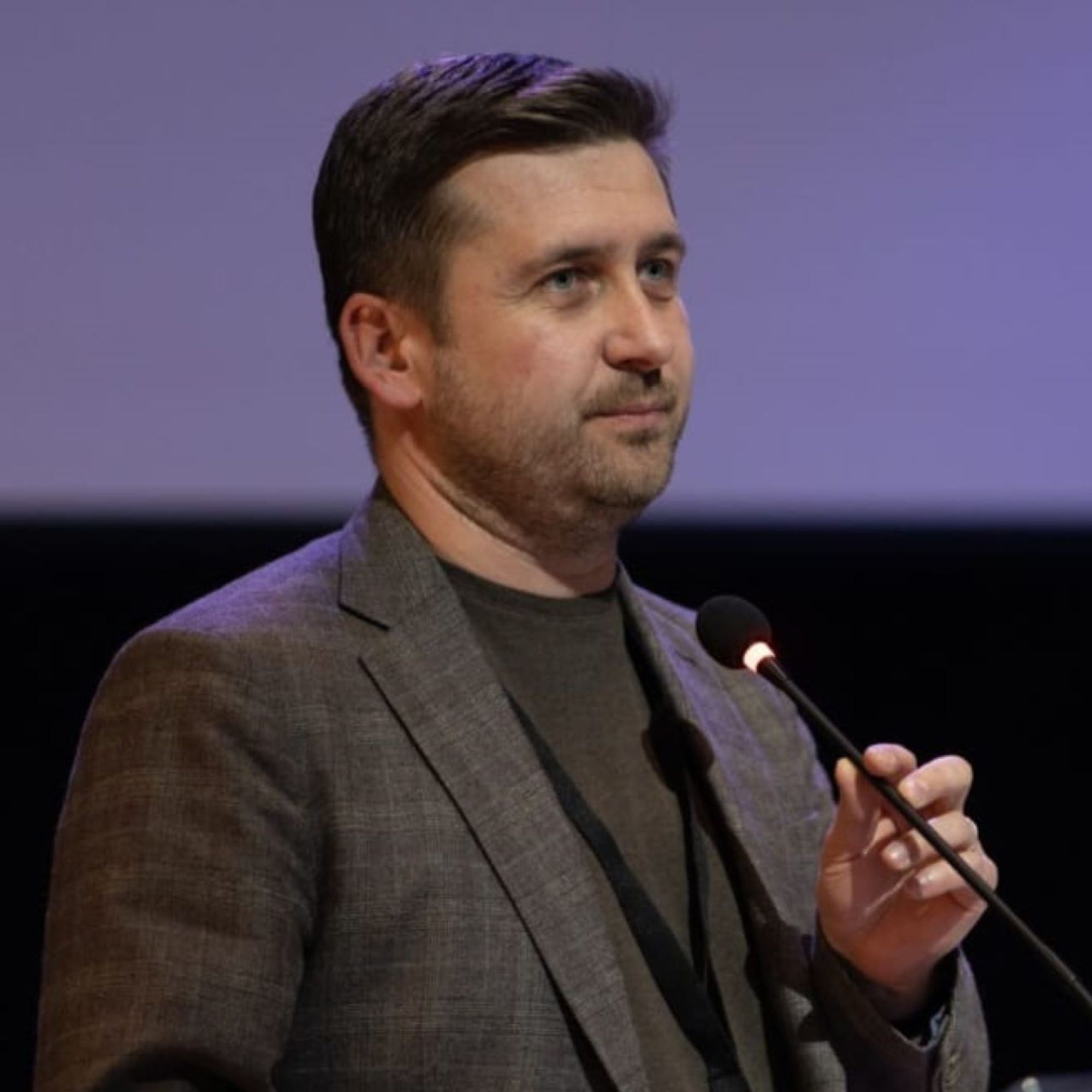
Ciprian Morcan
Ciprian is the founder of Hygia (consulting company) and coordinates the executive management of Transylvanian Furniture Cluster, running the Romanian Furniture Excellence Center. He has a strategic thinking, oriented towards business development and identifying opportunities, having over 20 years of professional experience as an entrepreneur, manager, consultant and trainer. He was coordinator and mentor in several programs and projects aimed at entrepreneurs, has a long-term vision and is a pioneer in international partnerships, developing business collaborations in Europe, North America, Asia and Africa. Ciprian is CMC certified (Certified Management Consultant), the globally recognized quality standard in more than 45 countries, which certifies that a consultant meets the highest standards of professionalism, ethics and excellence in consulting and management.



